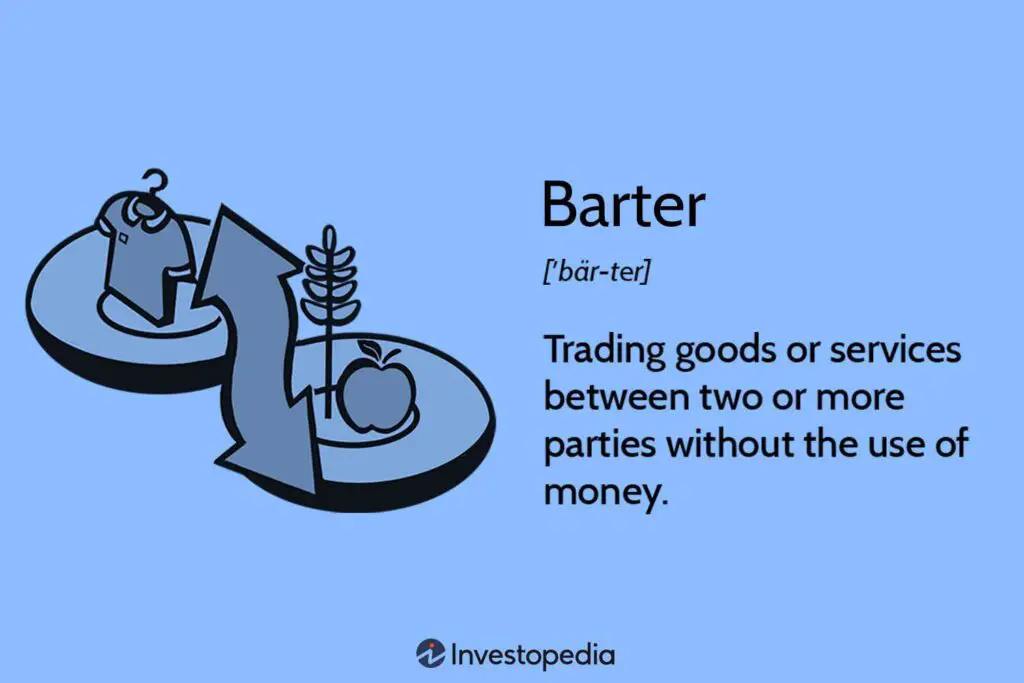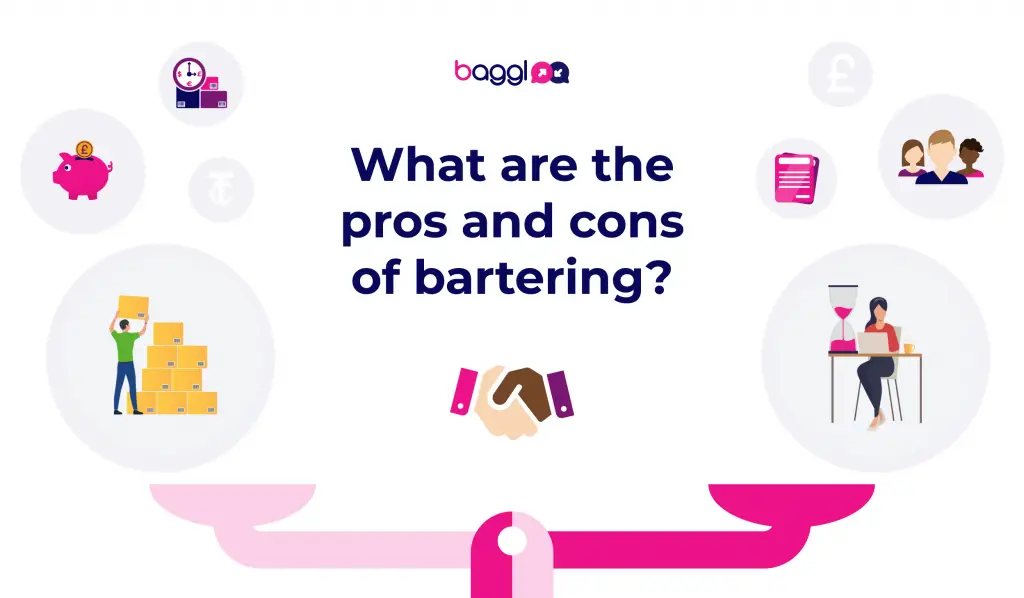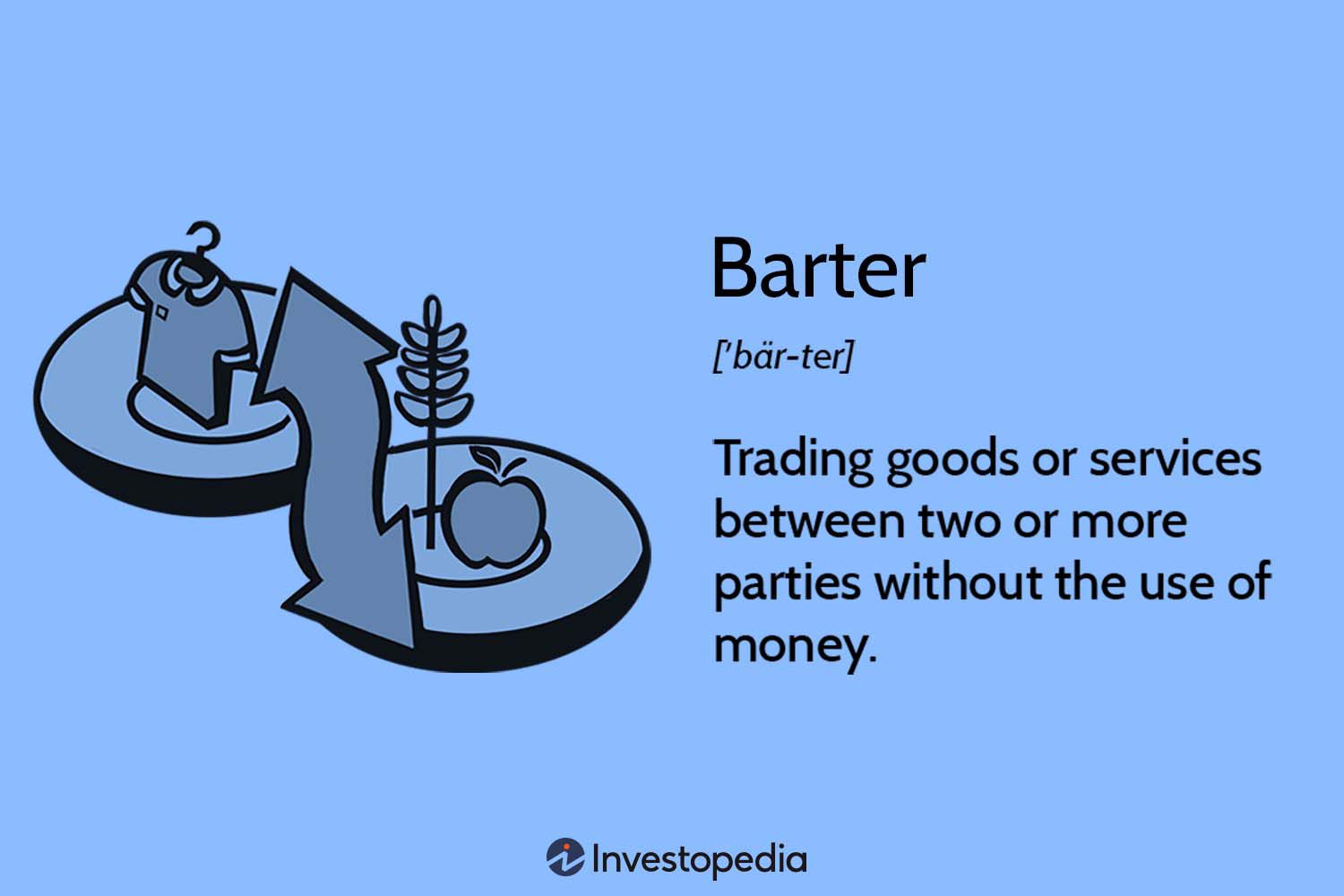Have you ever thought about the power of bartering? Like, trading services instead of paying with money? It’s actually a pretty cool concept that can save you a ton of money. In this article, I want to talk to you about the frugal lifestyle and how bartering can be a game-changer when it comes to your finances. Trust me, you won’t want to miss out on this!
So here’s the deal. We all know that living on a budget is tough, but the frugal lifestyle can really make a difference. And one way to make those dollars stretch even further is by trading services. You know, like if you’re good at gardening and your neighbor is a handyman, you can swap your skills instead of paying someone to do the work. It’s a win-win situation! In this article, we’ll dive into the benefits of bartering and how you can start trading services to save some serious cash. Trust me, you’ll be amazed at how much you can accomplish without spending a dime. Stay tuned!

Introduction
In today’s consumer-driven society, finding ways to save money and live a frugal lifestyle is becoming increasingly important. One often overlooked method is bartering – the act of trading goods or services without the use of money. Bartering has a long history, dating back to ancient times, and it continues to be a valuable practice in modern times. In this article, I will explore the power of barter and how trading services can save you money.
Understanding Barter
Definition of barter
Barter can be defined as the exchange of goods or services between two parties without the use of money. It involves a mutual agreement to trade, with both parties benefiting from the transaction. Unlike traditional monetary exchange, barter relies on the direct exchange of goods or services, making it a unique and beneficial practice.
Historical origins of barter
Barter has been a common practice throughout history, dating back to ancient civilizations. In the early days, people relied on barter as a means of survival, trading essential items like food and clothing. From Mesopotamia to the Silk Road, barter played a crucial role in facilitating trade and economic growth.
Benefits of bartering
There are several benefits to engaging in barter transactions. Firstly, barter allows individuals to acquire goods or services without the need for money. This can be particularly beneficial for those on a tight budget or experiencing financial constraints. Additionally, bartering promotes the exchange of skills and expertise, fostering a sense of community and mutual support. By trading services, individuals can save money while also building relationships and connections with others.
Bartering in Modern Times
Barter platforms and communities
In today’s digital age, barter has evolved to include dedicated platforms and communities that facilitate trade. These platforms provide a space for individuals to connect and exchange goods or services. Examples of popular barter platforms include Craigslist, BarterQuest, and Bunz Trading Zone. These platforms not only make bartering more accessible but also allow for a wider range of options and opportunities.
Examples of successful barter trades
There are numerous success stories of barter trades that have saved individuals money. For example, imagine someone who loves gardening but lacks the funds to hire a landscaper. In a barter trade, they could offer their gardening services in exchange for someone else’s expertise, such as painting or carpentry. This trade not only saves money but also allows both parties to benefit from each other’s skills.
How barter can be incorporated into a frugal lifestyle
Bartering can be an integral part of a frugal lifestyle, as it allows individuals to save money while acquiring the goods or services they need. By embracing the concept of trading, individuals can reduce their reliance on traditional monetary exchange and find creative ways to meet their needs. This not only saves money but also encourages resourcefulness and a sense of self-sufficiency.
Identifying Tradable Services
Assessing personal skills and expertise
To engage in successful barter trades, it is important to assess and identify your own skills and expertise. Consider what services you can offer that others may find valuable. Whether it’s graphic design, cooking, or home repairs, recognizing your strengths will allow you to leverage them in barter transactions.
Researching opportunities for service exchange
Once you have identified your own skills, it is essential to research opportunities for service exchange. Look for local barter communities or online platforms that align with your interests and needs. Joining these communities or platforms will give you access to a network of potential barter partners and increase your chances of finding mutually beneficial trades.
Determining the value of services
When engaging in barter trades, it is important to determine the value of the services being exchanged. This can be achieved by considering factors such as market rates, time commitment, and the level of expertise required. It may also be helpful to have open discussions with your barter partners to ensure a fair and equitable exchange.

Negotiating a Barter Agreement
Effective communication and negotiation skills
Negotiating a barter agreement requires effective communication and negotiation skills. It is essential to clearly articulate your expectations and needs while also being open to compromise. By approaching the negotiation process with a collaborative mindset, both parties can reach a mutually beneficial agreement.
Establishing fair terms and conditions
To ensure a successful barter trade, it is important to establish fair terms and conditions. This includes determining the scope of work, the timeline, and any additional requirements. Creating a clear and concise agreement will help prevent misunderstandings and ensure that both parties are satisfied with the outcome.
Creating a written agreement
To protect both parties involved in a barter trade, it is advisable to create a written agreement. This agreement should outline the services being exchanged, the agreed-upon terms and conditions, and any other relevant details. Having a written agreement helps establish accountability and can be referenced in case any disputes arise.
Tips for Successful Barter Trades
Maintaining a network of potential barter partners
Building and maintaining a network of potential barter partners is essential for successful trades. Attend local events or join online communities related to your areas of interest. By actively engaging with others who share similar values, you can increase your chances of finding suitable barter partners.
Being flexible and open-minded
Flexibility and open-mindedness are key attributes when engaging in barter trades. It is important to be open to different types of services and to consider trades that may not initially align with your immediate needs. By remaining flexible, you open yourself up to new opportunities and unique experiences.
Building trust and reliability
Developing trust and reliability is crucial in barter trades. By delivering high-quality services and honoring your commitments, you establish a reputation for being trustworthy and reliable. This not only strengthens your relationships with barter partners but also increases the likelihood of future trades.

Legal and Tax Considerations
Legal implications of barter
While barter transactions may seem informal, it is important to be aware of the legal implications involved. Depending on your jurisdiction, there may be specific laws or regulations governing barter exchanges. Familiarize yourself with these laws and ensure that any transactions you engage in comply with legal requirements.
Tax regulations and reporting
Barter transactions may also have tax implications. In some cases, the fair market value of the services exchanged may be subject to taxation. It is advisable to consult with a tax professional to understand the specific tax regulations and reporting requirements in your jurisdiction.
Seeking professional advice
If you are unsure about the legal or tax implications of barter trades, it is always best to seek professional advice. Consulting with an attorney or accountant who specializes in barter transactions can provide you with the necessary guidance to navigate any legal or tax-related concerns.
Overcoming Barter Challenges
Dealing with unequal trades
One potential challenge in bartering is dealing with unequal trades. It is not uncommon for one party to offer a service that is more time-consuming or of greater value than what they receive in return. In such cases, open and honest communication is key. Finding creative solutions, such as adding additional services or goods to balance the trade, can help overcome these challenges.
Resolving disputes
Disputes can arise in any type of transaction, including barter trades. If a disagreement occurs, it is important to address the issue promptly and openly. Engaging in respectful and constructive communication can often lead to a resolution. In more serious cases, involving a neutral mediator or seeking legal advice may be necessary.
Managing expectations
Managing expectations is crucial in barter trades. Be clear about what you can offer and what you expect in return. Avoid making assumptions and ensure that both parties have a shared understanding of the trade. By managing expectations from the outset, you can minimize potential conflicts and misunderstandings.

Expanding Barter Opportunities
Exploring barter networks and organizations
To expand your barter opportunities, consider exploring barter networks and organizations. These networks bring together individuals who are interested in bartering and offer a wider range of services and trades. Joining these networks can increase your chances of finding unique and valuable trades.
Utilizing online platforms and social media
In addition to dedicated barter networks, it is also beneficial to utilize online platforms and social media. Platforms like Facebook groups or specialized online forums can connect you with individuals who may have similar interests and desires to trade services. By leveraging the power of the internet, you can access a larger pool of potential barter partners.
Collaborating with local businesses
Expanding your barter opportunities can also involve collaborating with local businesses. Many small businesses are open to barter arrangements as a means of reducing costs and acquiring new customers. Consider reaching out to local businesses and proposing a barter trade that benefits both parties. This can be particularly beneficial for individuals who have specialized skills or services that may be of interest to local businesses.
Case Studies: Successful Barter Stories
How bartering saved a business during tough times
In times of economic downturn or financial hardship, bartering can be a lifeline for businesses. For example, a small restaurant faced with rising food costs and a slow customer base may engage in barter trades with local farmers or suppliers. By exchanging meals or advertising space for fresh produce or discounted supplies, the restaurant can reduce expenses and continue operating during tough times.
The benefits of bartering for personal finances
Bartering can also have significant benefits for personal finances. Imagine someone who is passionate about fitness but cannot afford expensive gym memberships or personal trainers. By offering their skills as a personal trainer in exchange for access to a local gym or guidance from a fitness professional, they can achieve their fitness goals without breaking the bank.
Barter success stories from around the world
Barter success stories are not limited to a specific region or culture. Communities around the world have embraced bartering as a way to meet their needs and foster a sense of connection. From rural communities trading agricultural products to urban professionals exchanging services, barter success stories highlight the power of trading services to save money and build relationships.

The Psychological Impact of Barter
Sense of community and connection
One of the often overlooked benefits of bartering is the sense of community and connection it fosters. By engaging in trades with others, individuals create bonds and relationships that go beyond traditional monetary transactions. Bartering can often lead to a sense of belonging and support within a community.
Boosting self-esteem and confidence
Bartering can also have a positive impact on self-esteem and confidence. By recognizing and valuing your own skills and expertise, you develop a sense of self-worth. Additionally, successfully negotiating and completing barter trades can boost confidence and provide a sense of accomplishment.
Enhancing problem-solving skills
Engaging in barter trades requires problem-solving skills. From identifying potential barter partners to negotiating fair terms and resolving disputes, bartering requires individuals to think creatively and find solutions. By consistently engaging in barter trades, individuals can enhance their problem-solving abilities and apply these skills to other areas of their lives.
Environmental and Sustainable Aspects of Barter
Reducing waste and consumption
Barter can contribute to reducing waste and consumption. By trading goods and services, individuals can repurpose or reuse items that would otherwise go to waste. For example, instead of discarding clothing, individuals can exchange them for items they need, reducing the need to purchase new items and contributing to a more sustainable lifestyle.
Promoting reuse and recycling
Barter promotes the reuse and recycling of goods. Rather than buying new products, individuals can trade for used items that still have value. This reduces the demand for new resources and contributes to a more circular economy. By focusing on reuse and recycling, barter supports sustainable practices and reduces the environmental impact of consumption.
Contributing to a circular economy
Barter transactions align with the principles of a circular economy. In a circular economy, resources are used efficiently, waste is minimized, and products are designed for longevity. By engaging in trade rather than traditional monetary exchange, individuals are directly participating in the circular flow of resources, contributing to a more sustainable and resilient economy.
Barter vs. Traditional Monetary Exchange
Comparing the advantages and disadvantages
Barter and traditional monetary exchange each have their own advantages and disadvantages. Barter eliminates the need for money, allowing individuals to acquire goods and services without any monetary investment. On the other hand, traditional monetary exchange provides flexibility and convenience, enabling individuals to quickly obtain what they need. It is important to carefully consider the specific circumstances and requirements of each transaction to determine which form of exchange is most appropriate.
Barter as a complement to conventional transactions
Barter can often complement traditional monetary transactions. Individuals can use barter as a means to acquire goods or services that they may not be able to afford with money alone. By incorporating barter into their financial strategies, individuals can expand their options and stretch their financial resources further.
When barter may not be the best option
While barter can be a powerful tool for saving money, there are times when it may not be the best option. For example, in situations where time is limited or specialized skills are required, traditional monetary exchange may be more efficient. It is important to assess the specific circumstances and requirements of each transaction to determine the most appropriate form of exchange.
Conclusion
In conclusion, the power of barter is undeniable when it comes to saving money and living a frugal lifestyle. By trading services instead of relying solely on traditional monetary exchange, individuals can save money, build relationships, and make the most of their skills and expertise. Through effective communication, fair negotiation, and a willingness to explore new opportunities, barter can transform the way we think about transactions and empower us to live more sustainably and economically. So next time you find yourself in need of a service, consider the power of barter – it may just save you money and open up a world of possibilities.

